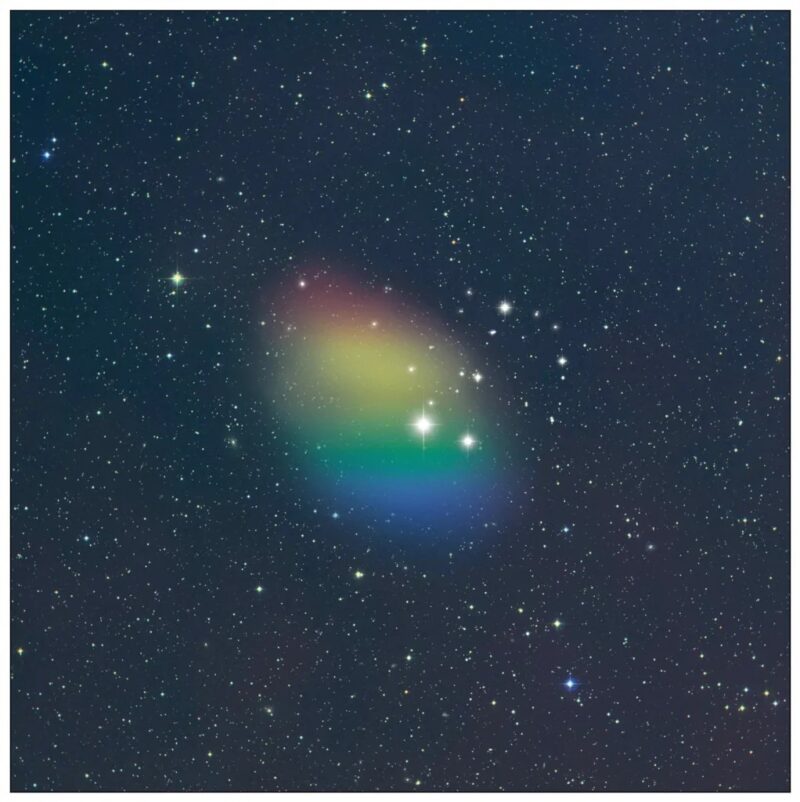
Galaxies are giant islands of stars, gas, dust and dark matter held together by gravity. At the annual meeting of the American Astronomical Society on January 8, 2024, astronomers from the Green Bank Observatory in West Virginia said they’ve found an unusual galaxy: one without any stars. And they discovered it completely by accident!
Discovering a galaxy without stars

Astronomers were using radio telescopes spread around the world, including the one at Green Bank, to survey some 350 low-surface-brightness galaxies. Senior scientist of the Green Bank Observatory, Karen O’Neil, explained:
The goal was to determine the gas and dynamic masses of these ultra-diffuse galaxies. To do this, we observed them from several instruments, and many of them more than once.
But they noticed a discrepancy in their data. And to be sure, when they took a closer look, they found that the Green Bank Observatory’s telescope was looking in the wrong place. O’Neil said:
The Green Bank Telescope was accidentally pointed to the wrong coordinates and found this object. It’s a galaxy made only out of gas … it has no visible stars. Stars could be there, we just can’t see them.

Meet J0613+52
Astronomers named the galaxy J0613+52. And while it definitely has a low-surface brightness, it’s not like other galaxies they’ve observed before, however. While there’s still much to learn about it, O’Neill explained what they’ve discovered about this unique galaxy:
What we do know is that it’s an incredibly gas-rich galaxy. It’s not demonstrating star formation like we’d expect, probably because its gas is too diffuse. At the same time, it’s too far from other galaxies for them to help trigger star formation through any encounters. J0613+52 appears to be both undisturbed and underdeveloped. This could be our first discovery of a nearby galaxy made up of primordial gas.
The galaxy lies about 270 million light-years away.
